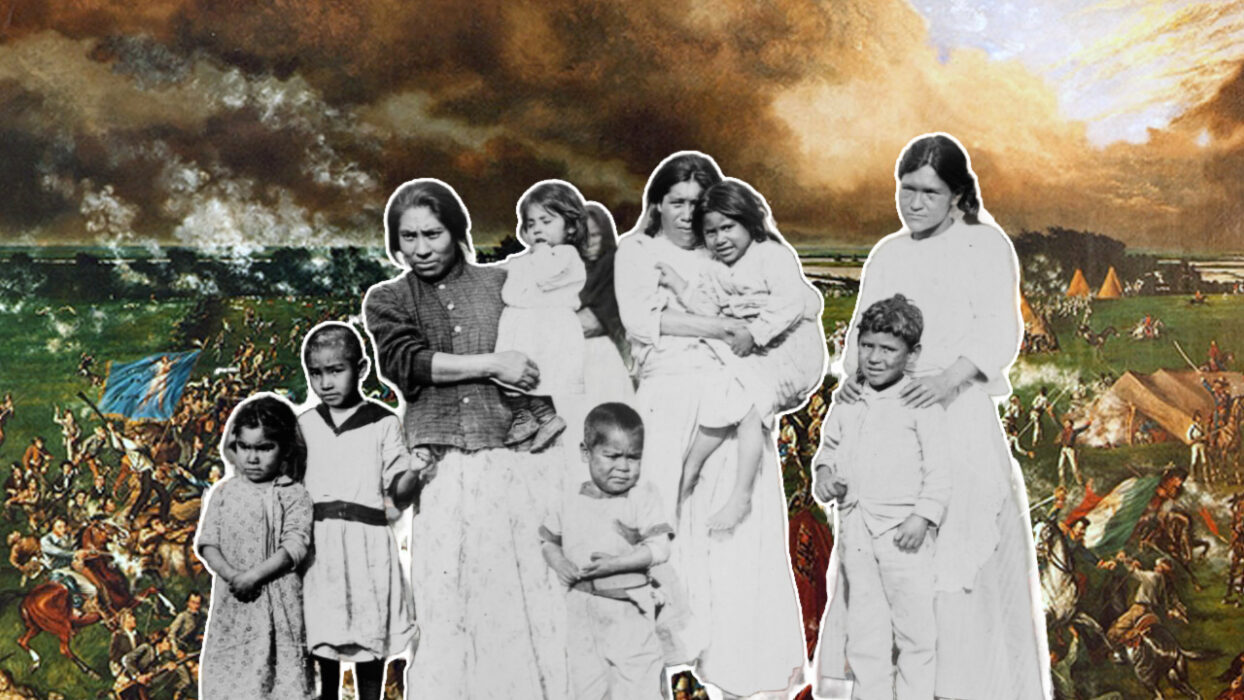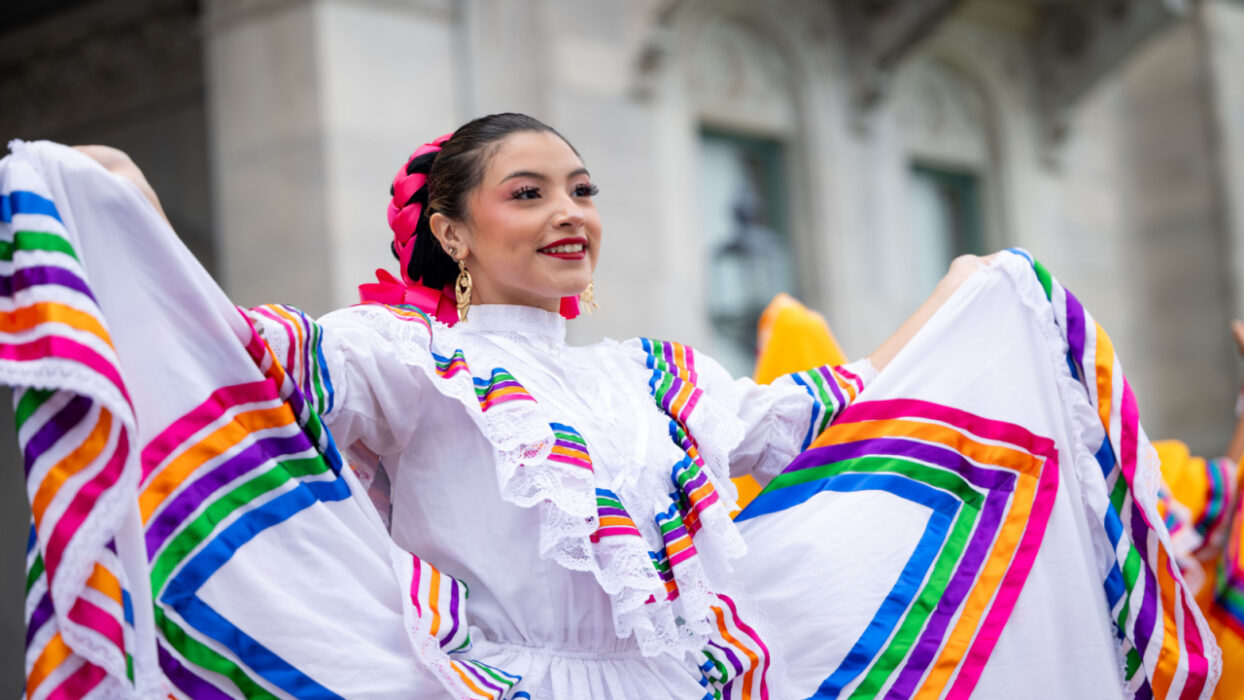
What Does Sex Positivity Look Like for Latinas Who Were Taught To Feel Shame Around Sex?
The only time my mother and I ever spoke about sex was when she told me she waited until marriage to have it. I was raised in Peru and attended catholic school, so this was a story many of my friends had heard from their own mothers.
At school and home, we discussed plenty of topics, but sex was never one of them. The only ‘sex education’ we ever received was our grade’s mothers joining forces to tell us about our periods. “You use this, you feel that, and your body will be changing”, they said and that was the gist of it. We didn’t understand it, and since most of us had not gone ‘through the change’ we didn’t care to understand it.
The funny thing about sex is, the more our elders pushed it out of the conversation, the more confused we felt and the more curious about it we became. The only problem was we had nowhere to get our information. We had no internet until we were around 12 (which might have been a blessing since many young people now get their first sex information from porn), sex books were surely not allowed at our school, most of our parents ignored sex talk altogether as they were taught by their parents, and our school’s teachers avoided the subject like the plague – so we didn’t dare ask for details.

Fast forward 20 years and here we are – watching a movie with our viejos pretending to be on our phones whenever a sex scene comes on the screen. We get uncomfortable around the subject because for most of our lives it has been instilled in us that not only is it forbidden — unless it’s with your husband —, but it’s wrong and we should be ashamed of it. Our bodies are to bring babies into the world, and that’s just the way it is. Otherwise, why would discussing it be so taboo?
As an adult living in the Latin American melting pot that is Miami, I still witness older generations — and sometimes younger generations — shaming women for their choices. You can’t have a meal at a ventanita without the occasional “Look at what she’s wearing. Oh my god how revealing” which is usually accompanied by a judgmental glance.
As women, when we make the choice to wear shorts or put on that crop top we’re also fully aware that an abuela or a tía is going to judge us as we walk by. We constantly have to remind ourselves that our outfit choices are our own, our body is our own, and whoever doesn’t like it can kick rocks. However, getting to that “no me importa” attitude isn’t easy, but more and more Latinas are starting to take ownership of their bodies and they’re starting to become proud of how they look – even if it’s not what fits into today’s beauty standards.
For many of us, living in the United States has allowed us to become brave about our choices. Here we’re not as limited by the impediments of our own countries or our own cultures. We’re dabbling between the American things and the Latino things and we’re beginning to forge our own paths. The world is starting to understand that maybe she wants to perrear sola, and you should let her, as Bad Bunny teaches us. That maybe sex and sexuality aren’t sins to be punished and that if we accept ourselves as sexual beings and embrace that, it still doesn’t mean ‘que pa la cama voy’ – (that we’re bedding anyone, as Ivy Queen puts it). Maybe we, too, can embrace our sexuality and be freer than we were taught.
So, what factors have long contributed to the way Latina women feel about sex?
The Pew Research Center found that 62% of US Latinos are Catholic. This should come as no surprise as most countries in South and Central America are also mostly catholic. Religion teaches us many things, one of them revolving around our virginity and the need to protect it in order to remain ‘pure’. Many of us grew up being taught that your virginity belongs to your future spouse so it should not be given away freely, and you will be seen as ‘impure’ should you choose to sleep with others before getting married.

Since religion is such a deeply rooted part of Latino culture, it’s difficult to separate wanting to be pure and wanting to be sexually positive. In turn, the concept of embracing our sexuality almost can’t happen without disappointing our abuelitas. I mean, all we need to do is look at “Jane the Virgin”. A Venezuelan American girl who was raised by her mother and her grandmother and wanted to remain a virgin until marriage. In the show, we see how her abuelita gives her a flower representing her virginity and how these ideas crept into her mind at the most inopportune moments – AKA when she was getting hot and heavy.
Along with deeply religious values, we also have often been surrounded by dated patriarchal values sprinkled across our cultures. The man works, and the woman cooks. The man relaxes watching TV after work, the woman cares for the children. The man goes out for rounds of beers with his compadres, the woman waits for him at home. Along with the drinking, there comes a whole other territory of sex and cheating. A woman who was friends with my parents once told me “If you ever catch your man cheating, you close the door, leave the house and come back later. They can’t help it, it’s in their biology”. As a 16-year-old girl, I was stupefied. Granted, my mother and grandmother didn’t think this way, but a lot of women their age did, and it showed.
Patriarchal culture is funny because it sneaks up on you even if you think you outgrew it or unlearned it. My brother and I say that we might’ve grown up in the same house, but we grew up with different parents. He never abided by the curfew but if I came home a minute past, I was treated like a criminal. He never had to do the dishes to be able to go out on the weekends and when my mom was working her butt off to provide, it was me she called to pull out the Nicolini book and figure out what I was going to make us all for dinner. Whenever I pointed out these obvious disparities, I was told to stop complaining. Let me be clear – I don’t blame my parents, they were raised far more strictly than I was, and the disparities were far greater, which means we ARE making progress.
What tools can we implement to become more sex-positive?
Engage in self-pleasure
Irma Garcia, Sex Educator and Creator of Dirty South Sex, Texas, told Yahoo! Life that she “recommends anyone who is experiencing sexual shame to try engaging in self-pleasure”. She specified that this does not necessarily only mean masturbation, but doing something as treating yourself to a cupcake, since shame around our bodies is closely related to shame around sex.
Get yourself some sex-positive friends
If you ever heard your abuela saying “dime con quién andas y te diré quién eres”, you know what I’m talking about. Birds of a feather flock together, mijas. Rebecca Alvarez Story, Sexologist and Co-Founder & CEO of Bloomi, California, said to Yahoo! Life “When it comes to healing sexual shame, it’s important to surround yourself with people who are sex-positive. This can be friends, a tía, a cousin, or anyone else. What’s important is to build a community you can lean on with these types of topics and conversations. This way, you can exist very confidently around people who hold shameful ideologies without absorbing it in the same way.” So, get yourself some sex-positive comadres and start chatting. How do they feel about sex? How does that translate into their romantic and sexual relationships? How does sex positivity help them in other areas of their life? Is it impacting in how they feel about their body? and how they choose to dress and maybe even eat? Get yourself some sex friends to discuss this openly and you’ll see how your life starts to change.
Amigas, let’s do better for ourselves. Let’s let our hair down, put on that skirt, and that crop top, or eat that muffin and talk about what you need to talk about because, at the end of the day, we live for us and our health. Knowledge is power and we Latinas were not meant to be anything but powerful. Most importantly, let’s get educated so we can do better for the next generation of Latinas – because uncomfortable topics don’t just disappear. May we all embrace our sexuality in a healthy and informed way!




